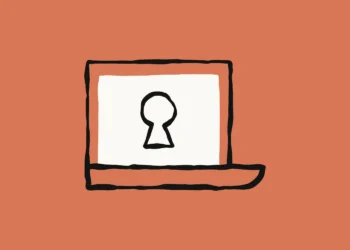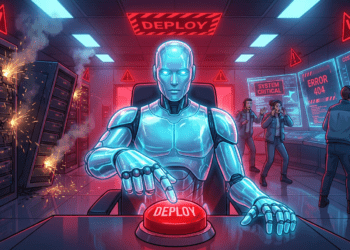In a dramatic shift that has sent shockwaves through the digital publishing industry, Google has admitted in a court filing that “the open web is already in rapid decline,” directly contradicting months of public statements from its top executives who insisted the internet ecosystem was thriving. This revelation, discovered in legal documents filed on September 5, 2025, has exposed a stark disconnect between Google’s public relations messaging and its private legal arguments.

The Courtroom Confession
The admission came buried in a court filing submitted ahead of Google’s upcoming antitrust trial, where the tech giant faces potential breakup of its advertising technology business. In the document, Google’s lawyers wrote: “The fact is that today, the open web is already in rapid decline and Plaintiffs’ divestiture proposal would only accelerate that decline, harming publishers who currently rely on open-web display advertising revenue.”
This statement was first spotted by digital rights advocate Jason Kint and subsequently reported by Search Engine Roundtable, sparking widespread discussion about Google’s contradictory positions on the health of the internet. The filing represents a complete reversal from Google’s consistent public messaging that the web is not only healthy but actually expanding and thriving.
A Tale of Two Narratives
The contradiction is particularly striking when compared to recent statements from Google’s leadership. Just months earlier, in May 2025, Google CEO Sundar Pichai confidently declared during a Decoder podcast interview that the company was “definitely sending traffic to a wider range of sources and publishers” following the rollout of AI search tools. Similarly, Nick Fox, Google’s senior vice president of knowledge, defended the company against claims that search changes were impacting web traffic, stating unequivocally: “From our point of view, the web is thriving.”
These public assurances were part of Google’s broader campaign to counter growing criticism from publishers and website owners who reported significant traffic declines following changes to Google’s search algorithm and the introduction of AI-powered search features. The company has repeatedly insisted that its AI Overview feature and other algorithmic changes were not harming the broader web ecosystem.
The Legal Strategy Behind the Admission
Google’s court filing was submitted as part of its defense against the U.S. Department of Justice’s recommendation that the company break up its advertising business following an antitrust ruling. The DOJ’s proposed remedies stem from a court decision that found Google had illegally monopolized the advertising technology market by tying its display ad services with its AdX marketplace, suppressing competition and preferencing its own services in ad auctions.
In arguing against the proposed breakup, Google contends that forcing divestiture would only accelerate the decline of the open web, potentially harming publishers who depend on advertising revenue. The company’s legal team painted a picture of an industry already in flux, stating: “AI is reshaping ad tech at every level; non-open web display ad formats like Connected TV and retail media are exploding in popularity; and Google’s competitors are directing their investments to these new growth areas.”
This strategic positioning allows Google to present itself as a protector of the open web rather than its potential destroyer, arguing that market forces rather than regulatory intervention should determine the industry’s future. However, critics have pointed out the inherent contradiction in simultaneously claiming the web is thriving while arguing it needs protection from further decline.
Google’s Damage Control Efforts
Following the widespread coverage of the court filing, Google quickly moved to clarify its position. Spokesperson Jackie Berté told The Verge that the statement was “one cherry-picked line that misrepresents” the company’s legal filing. She argued that the context made it clear Google was referring specifically to “open-web display advertising” rather than the open web as a whole.
“We are pointing out the obvious: that investments in non-open web display advertising like connected TV and retail media are growing at the expense of those in open web display advertising,” Berté explained. This distinction, however, has been met with skepticism from industry observers who note that the health of web advertising is intrinsically linked to the overall vitality of the open web.
Dan Taylor, Vice President of Global Ads at Google, also weighed in on social media, emphasizing that the company was referring to advertising specifically rather than the web broadly. However, critics argue this distinction may be meaningless, as the decline of advertising revenue directly impacts the sustainability of web content creation and publishing.
The Broader Context of Web Decline

The admission comes at a time when numerous independent studies and reports have documented significant changes in web traffic patterns. A recent analysis by the Pew Research Center found that users are “less likely” to click on links when presented with Google’s AI Overview feature, suggesting that AI-powered search results may indeed be reducing traffic to websites.
Despite this research, Google Search head Liz Reid has maintained that click volume has remained “relatively stable” compared to the previous year, claiming the company continues to “send billions of clicks to websites every day.” However, the company has not released detailed data to substantiate these claims, leading to continued skepticism from publishers and digital rights advocates.
The situation has been further complicated by Google’s own metrics showing a 45% increase in indexable content since 2023. While Google representatives have cited this as evidence of a thriving web, critics suggest much of this new content may consist of AI-generated material or “slop” rather than high-quality, human-created content that traditionally drove web engagement and advertising revenue.
Industry Impact and Publisher Concerns
The revelation has validated concerns that have been mounting among digital publishers and independent website owners for months. Many have reported experiencing significant traffic declines following Google’s algorithm updates and the introduction of AI-powered search features. These changes have had real economic consequences, with some publishers forced to reduce staff or shut down operations entirely due to decreased advertising revenue.
The situation is particularly concerning given Google’s dominant position in both search and advertising. With the company controlling approximately 90% of the search market and a significant portion of digital advertising, its decisions about how to present information and direct traffic have outsized impacts on the entire web ecosystem.
Publishers have found themselves in an increasingly difficult position, dependent on Google for both traffic and advertising revenue while having little control over the platform’s evolving priorities. The shift toward AI-powered search results that provide answers directly on Google’s platform, rather than directing users to source websites, has fundamentally altered the traditional relationship between search engines and content creators.
The AI Factor
The timing of Google’s admission is particularly significant given the rapid deployment of AI features across its search platform. The company has been aggressively rolling out AI Overview, which provides AI-generated summaries of search queries directly in search results. While Google has maintained that these features complement rather than replace traditional web search, the evidence suggests otherwise.
The integration of AI into search represents a fundamental shift in how information is consumed online. Rather than clicking through to websites to read full articles or explore topics in depth, users increasingly receive condensed, AI-generated summaries that may reduce their need to visit the original sources. This change has profound implications for the economic model that has supported web content creation for decades.
Legal and Regulatory Implications
Google’s contradictory statements may have significant legal implications beyond the current antitrust case. Jason Kint, who first highlighted the court filing, noted that the admission suggests “either Google executives have been lying to the public and investors for months or to a Court.” Other legal proceedings or regulatory investigations could potentially use this discrepancy as evidence.
The situation also highlights the challenges regulators face in addressing the power of major tech platforms. By simultaneously arguing in public that the web is thriving and in court that it is in decline, Google demonstrates its sophisticated approach to managing different audiences and regulatory environments.
The Document Revision Controversy
Adding another layer to the controversy, Google’s legal team subsequently revised the court documents, changing multiple instances of “open web” to “open-web display advertising.” Jason Kint documented these changes on social media, noting four specific instances where the language was modified after the initial filing gained public attention.
Critics see this revision effort as an attempt to retroactively narrow the scope of Google’s admission, though the changes may actually highlight the company’s recognition that its original language was problematic. The fact that Google felt compelled to revise legal documents after public scrutiny suggests the company understood the significance of its original wording.
Looking Forward: The Future of the Open Web
Google’s admission, whether referring to the web broadly or advertising specifically, reflects broader changes in how people consume information online. The rise of social media platforms, streaming services, mobile apps, and AI-powered tools has fundamentally altered internet usage patterns. Traditional websites increasingly compete not just with each other, but with entirely different forms of digital content and interaction.
The shift toward “walled gardens” closed platforms like social media apps where users spend increasing amounts of time has been ongoing for years. Google’s own data shows that in-app advertising represents the largest growth sector in digital advertising, while time spent on traditional web content remains stagnant or declining.
This evolution raises fundamental questions about the future of the open web as we’ve known it. If advertising revenue continues to migrate away from traditional websites toward closed platforms and new formats like connected TV and retail media, the economic foundation supporting independent web publishing may indeed be in jeopardy.
Conclusion: A Moment of Truth

Google’s court filing represents a rare moment of candor from a company that has carefully managed its public messaging around the health of the web. Whether the admission refers to the open web broadly or advertising specifically, it acknowledges a reality that many publishers and website owners have been experiencing firsthand: the traditional model of web publishing is under severe strain.
The contradiction between Google’s public statements and legal arguments highlights the complex position the company occupies as both a gatekeeper to web traffic and a major beneficiary of the current system. As the antitrust case proceeds and regulators continue to scrutinize big tech’s influence, Google’s admission may serve as a crucial piece of evidence about the true state of the internet ecosystem.
For publishers, content creators, and advocates of an open internet, the admission validates long-standing concerns about the concentration of power in the hands of a few major platforms. We will see whether this recognition drives meaningful changes in how these platforms operate or simply serves as a strategic legal argument. What is clear is that the future of the open web hangs in the balance, and Google’s own words suggest that future may be more precarious than previously acknowledged.
The story continues to develop as the antitrust case proceeds, but Google’s admission has already fundamentally changed the conversation about the health of the internet. After months of insisting the web was thriving, the company’s own legal team has acknowledged what many have long suspected: the open web as we know it is in serious trouble.
Sources
- The Verge — Google admits the open web is in ‘rapid decline’
- Search Engine Roundtable — New Google Court Doc: Open Web Is In Rapid Decline
- 9to5Google — Google says ‘the open web is in rapid decline’ weeks after arguing in favor of AI
- Wonderful Engineering — Google Has Admitted That The Open Web Is In Rapid Decline
- Layuo — In court filing, Google concedes the open web is in “rapid decline”










Comments 1